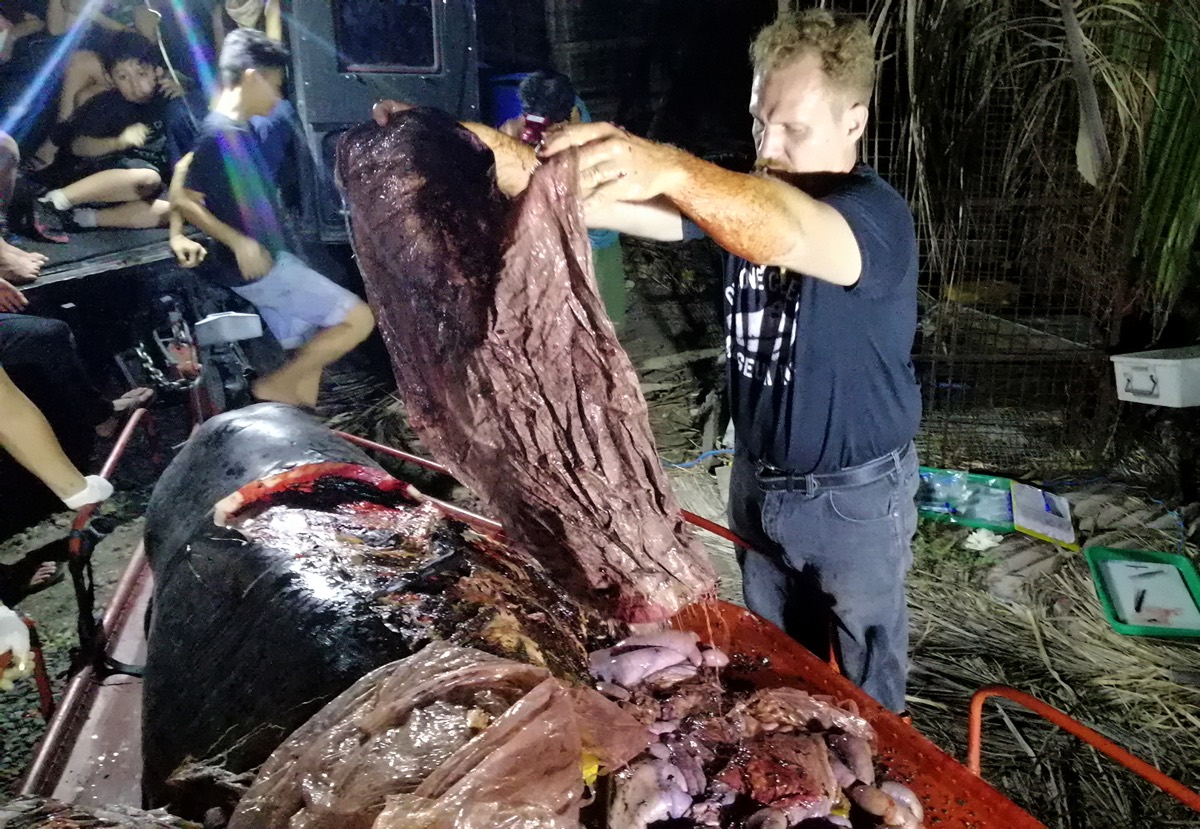Dead Whale Washes Ashore with Shocking 88 lbs. of Plastic in Its Stomach

Get the world’s most fascinating discoveries delivered straight to your inbox.
You are now subscribed
Your newsletter sign-up was successful
Want to add more newsletters?

Delivered Daily
Daily Newsletter
Sign up for the latest discoveries, groundbreaking research and fascinating breakthroughs that impact you and the wider world direct to your inbox.

Once a week
Life's Little Mysteries
Feed your curiosity with an exclusive mystery every week, solved with science and delivered direct to your inbox before it's seen anywhere else.

Once a week
How It Works
Sign up to our free science & technology newsletter for your weekly fix of fascinating articles, quick quizzes, amazing images, and more

Delivered daily
Space.com Newsletter
Breaking space news, the latest updates on rocket launches, skywatching events and more!

Once a month
Watch This Space
Sign up to our monthly entertainment newsletter to keep up with all our coverage of the latest sci-fi and space movies, tv shows, games and books.

Once a week
Night Sky This Week
Discover this week's must-see night sky events, moon phases, and stunning astrophotos. Sign up for our skywatching newsletter and explore the universe with us!
Join the club
Get full access to premium articles, exclusive features and a growing list of member rewards.
A young Cuvier's beaked whale washed up dead on a beach in Compostela Valley in the Philippines, its stomach filled with 88 pounds (40 kilograms) of plastic bags.
Workers from the D'Bone Collector Museum Inc. in Davao City in the Philippines recovered the whale — a male — on Saturday (March 16) and later performed a necropsy. They found its stomach was packed with plastic bags — 16 rice sacks, four banana-plantation-style bags and some shopping bags, according to a Facebook post from the museum.
His stomach "had the most plastic we have ever seen in a whale," they wrote in the post. "It's disgusting." And it wasn't just plastic bags: The museum said it plans to post a full list of all the plastic items found in the whale's stomach in the next few days.
This isn't the first time a whale full of plastic has washed ashore. A dead sperm whale washed up in Indonesia last November with 100 plastic cups, four plastic bottles, 25 plastic bags and even a couple of flip-flops inside its stomach. The Cuvier's whale in the Philippines held seven times more plastic than that sperm whale, the museum said
"Everytime you see this it's shocking," said Lindsay Mosher, the program manager for the nonprofit Oceanic Society's Blue Habits project. "It's obviously tragic."
Plastics are one of the most common types of debris found in the ocean, according to the National Oceanic and Atmospheric Administration. The garbage can enter the water through improper waste management, litter on shorelines or out in the sea, and stormwater runoff.
Around 8.8 million tons (8 million metric tons) of plastic get dumped into the ocean every year, according to a 2015 report by the nonprofit Ocean Conservancy. In particular, about 60 percent of it comes from China, Indonesia, the Philippines, Thailand and Vietnam.
Get the world’s most fascinating discoveries delivered straight to your inbox.
But in any case, this is a global problem, said Mosher, who added that people can take relatively simple steps to help combat plastic pollution. Even something as simple as taking reusable bags to the grocery store or bringing glass containers to work for lunch could build a habit and influence others to do the same, she said.
Once these and similar societal habits take hold, and large companies and corporations catch on to good practices that avoid plastic waste, she said. The result could give marine creatures a chance of life without drowning in the debris of human ignorance.
- Marine Marvels: Spectacular Photos of Sea Creatures
- 10 of the Most Polluted Places on Earth
- What We Recycle (Infographic)
Originally published on Live Science.

Yasemin is a staff writer at Live Science, covering health, neuroscience and biology. Her work has appeared in Scientific American, Science and the San Jose Mercury News. She has a bachelor's degree in biomedical engineering from the University of Connecticut and a graduate certificate in science communication from the University of California, Santa Cruz.
 Live Science Plus
Live Science Plus










